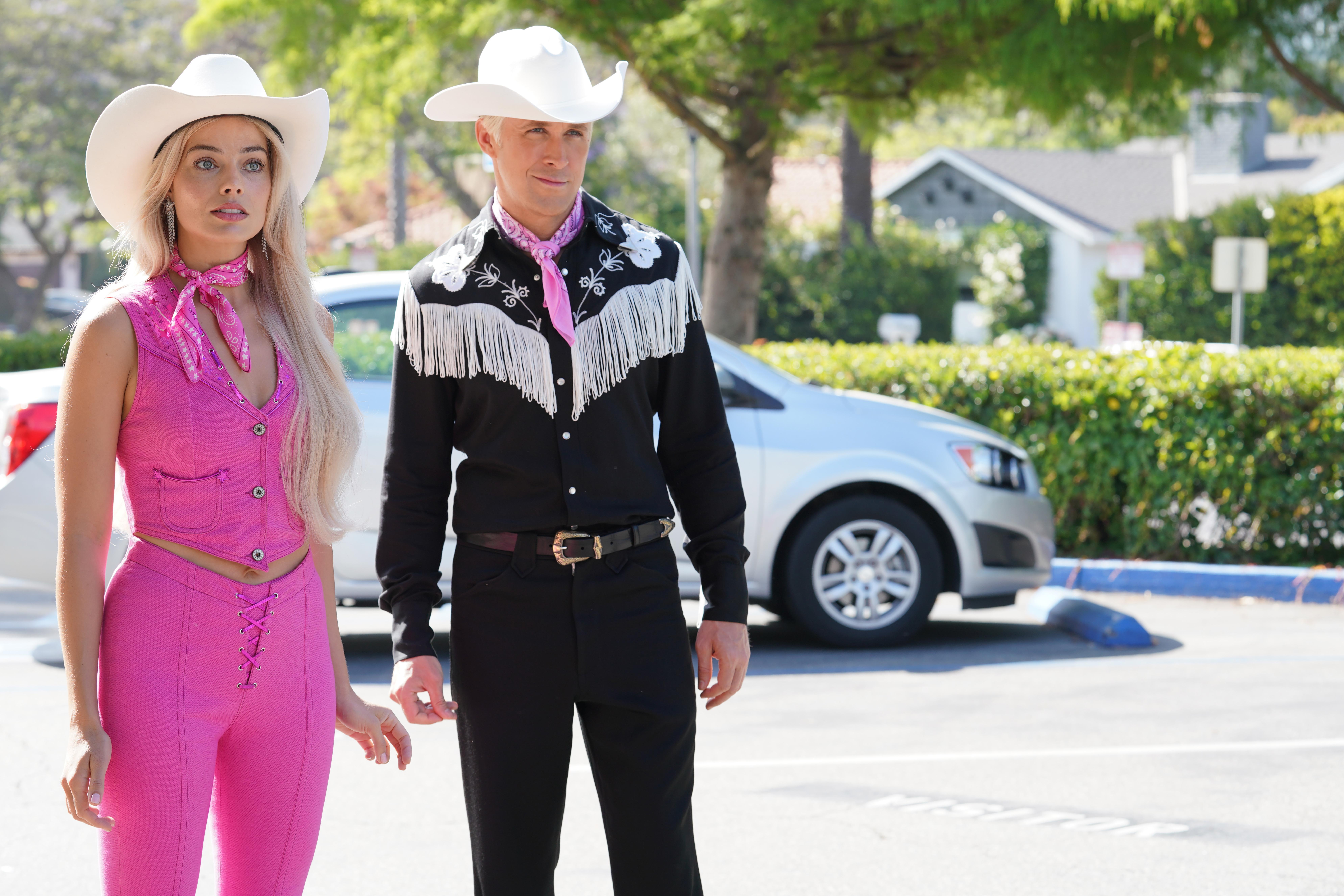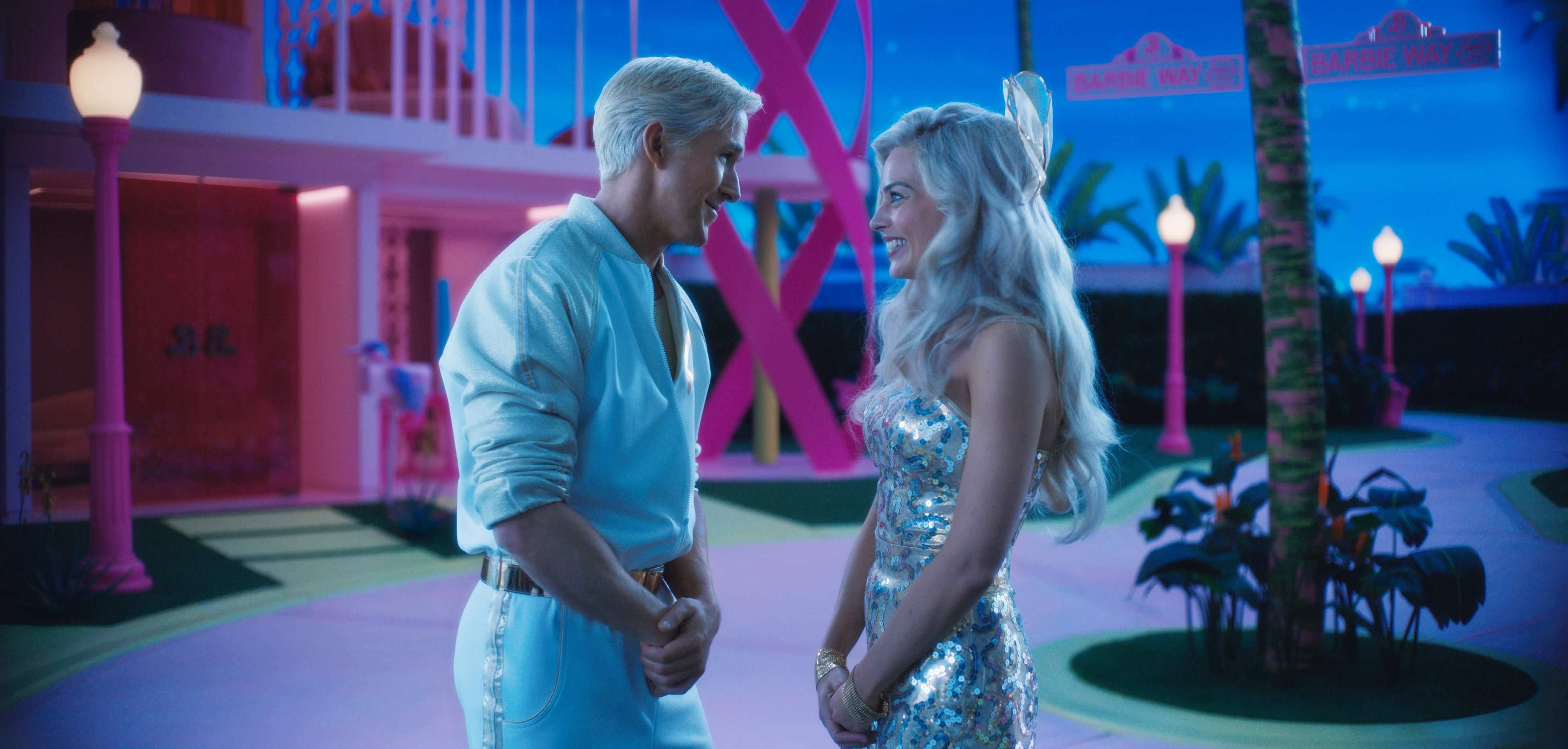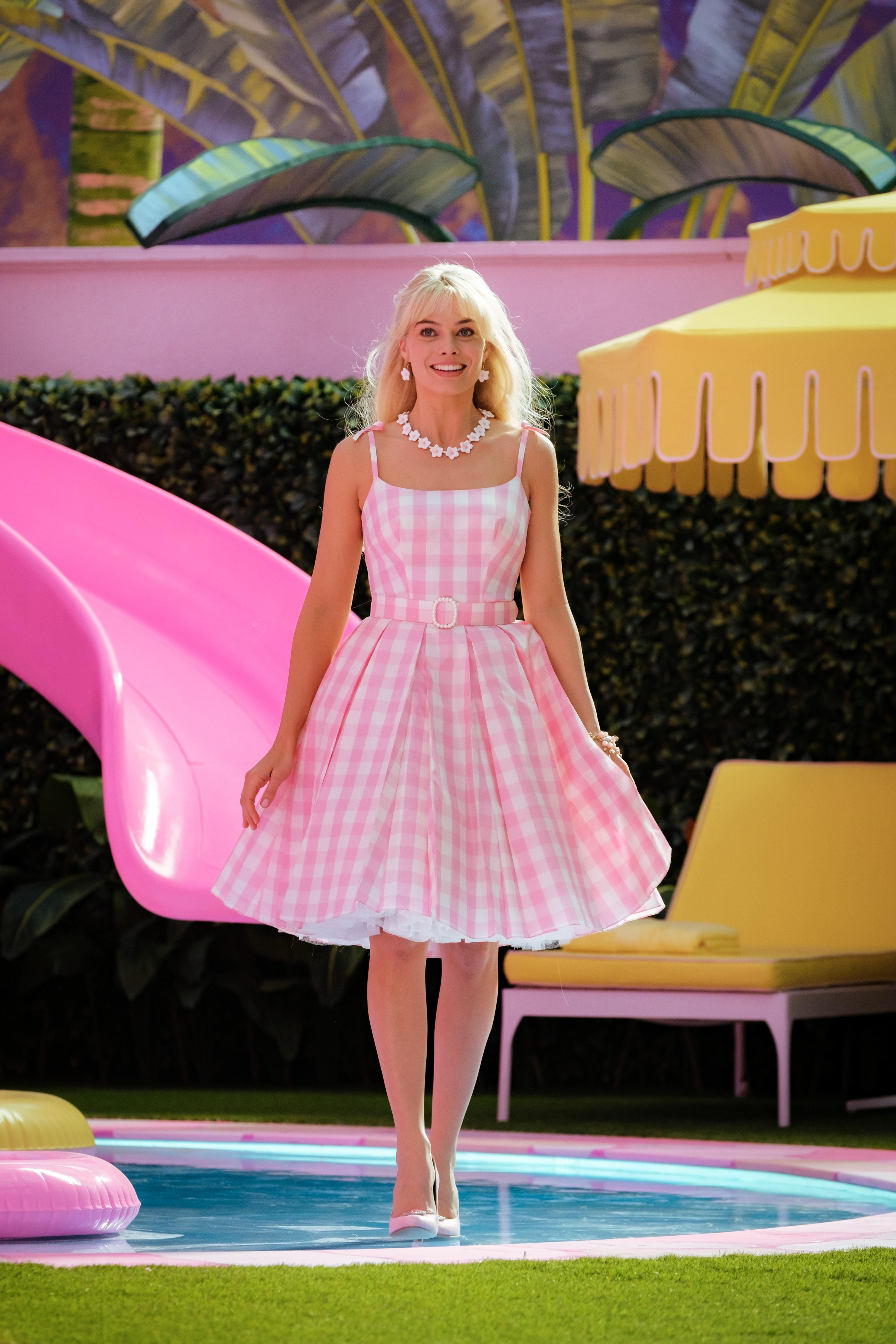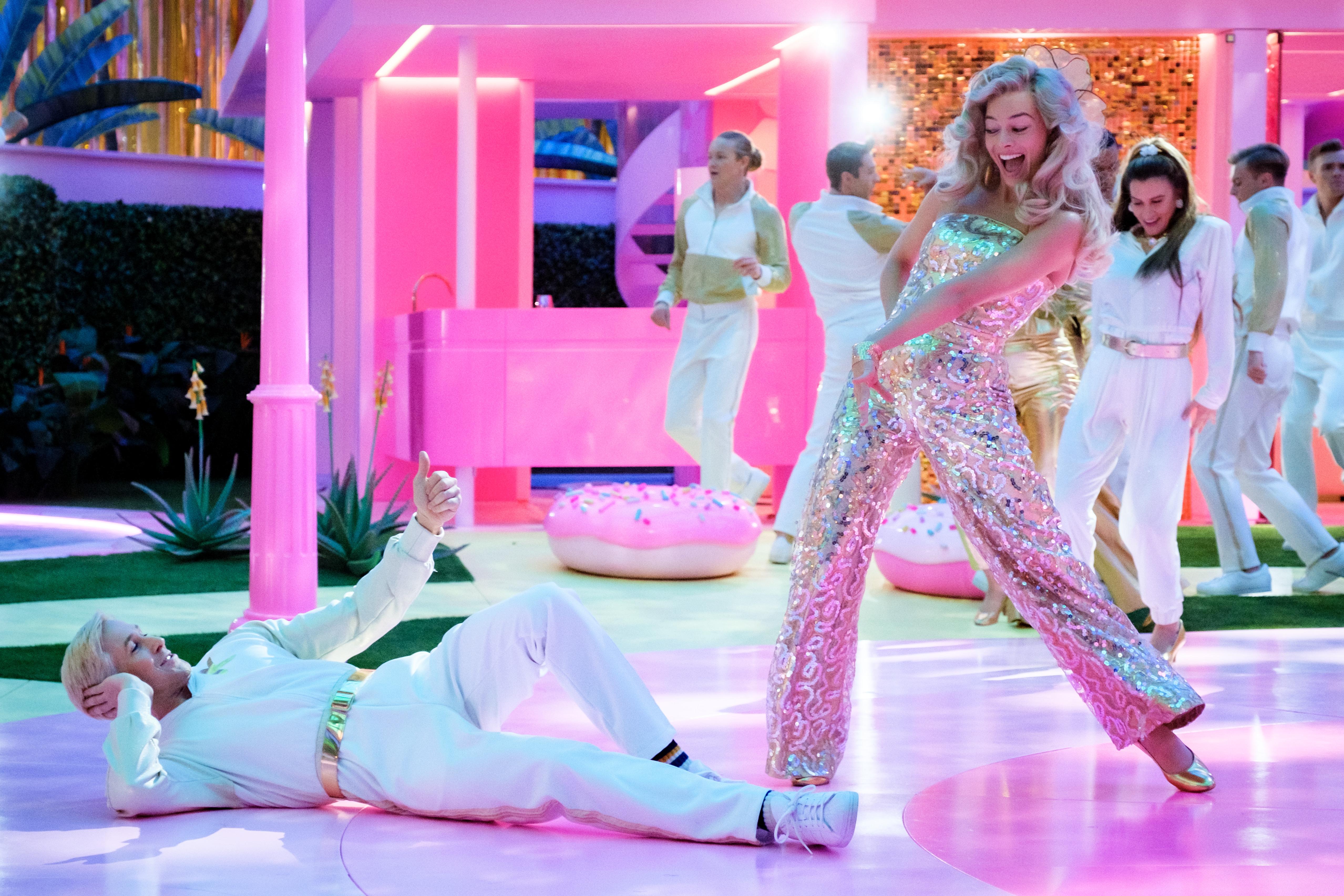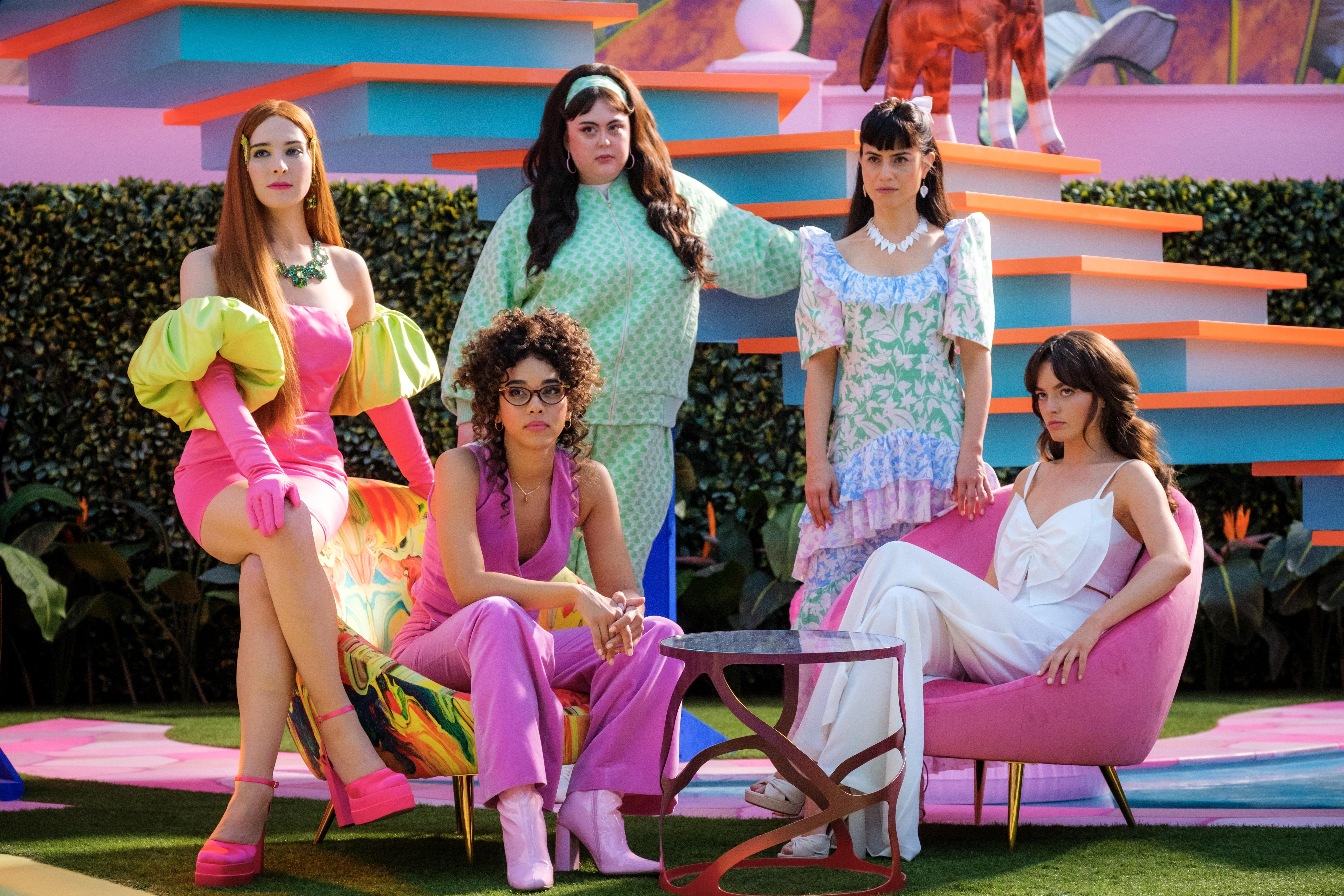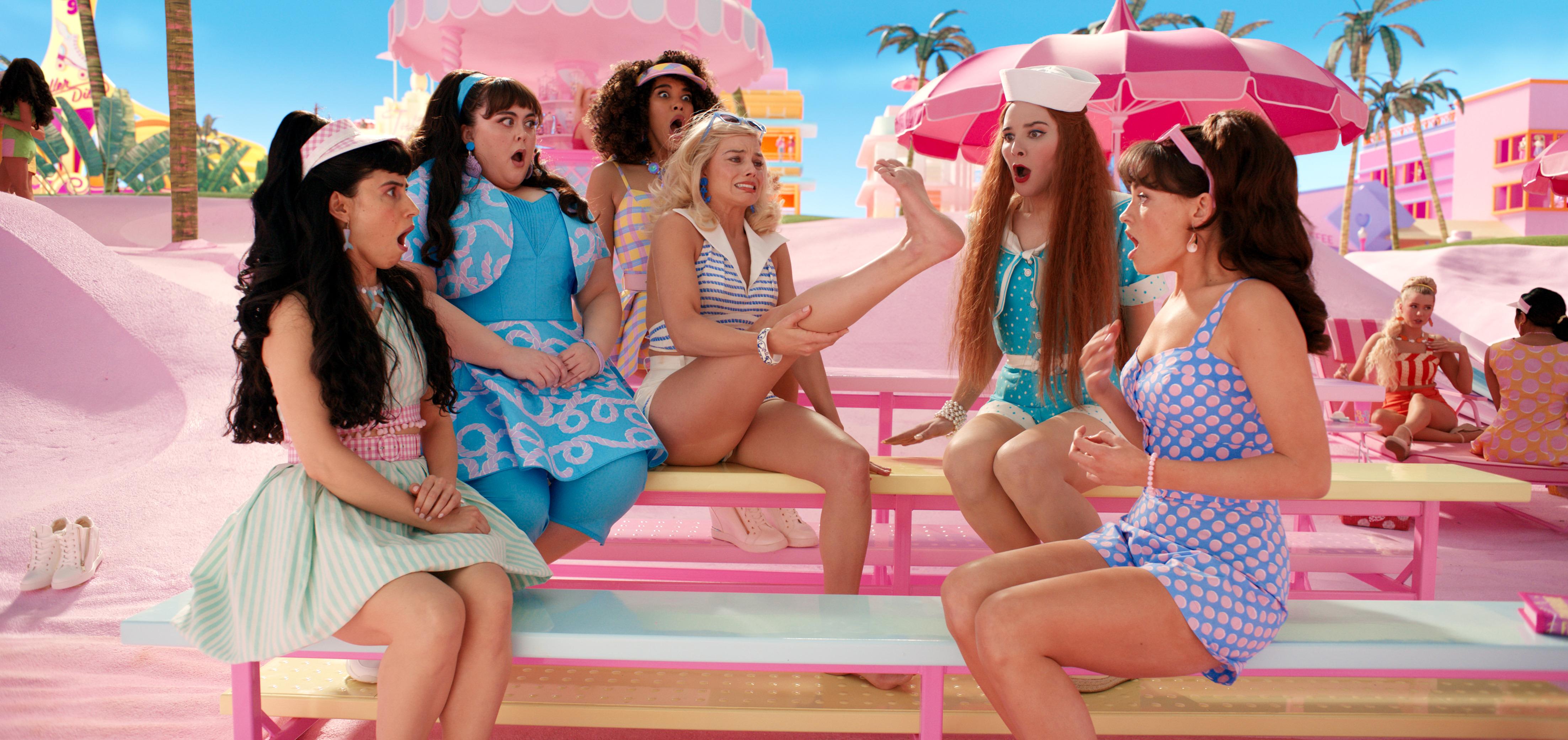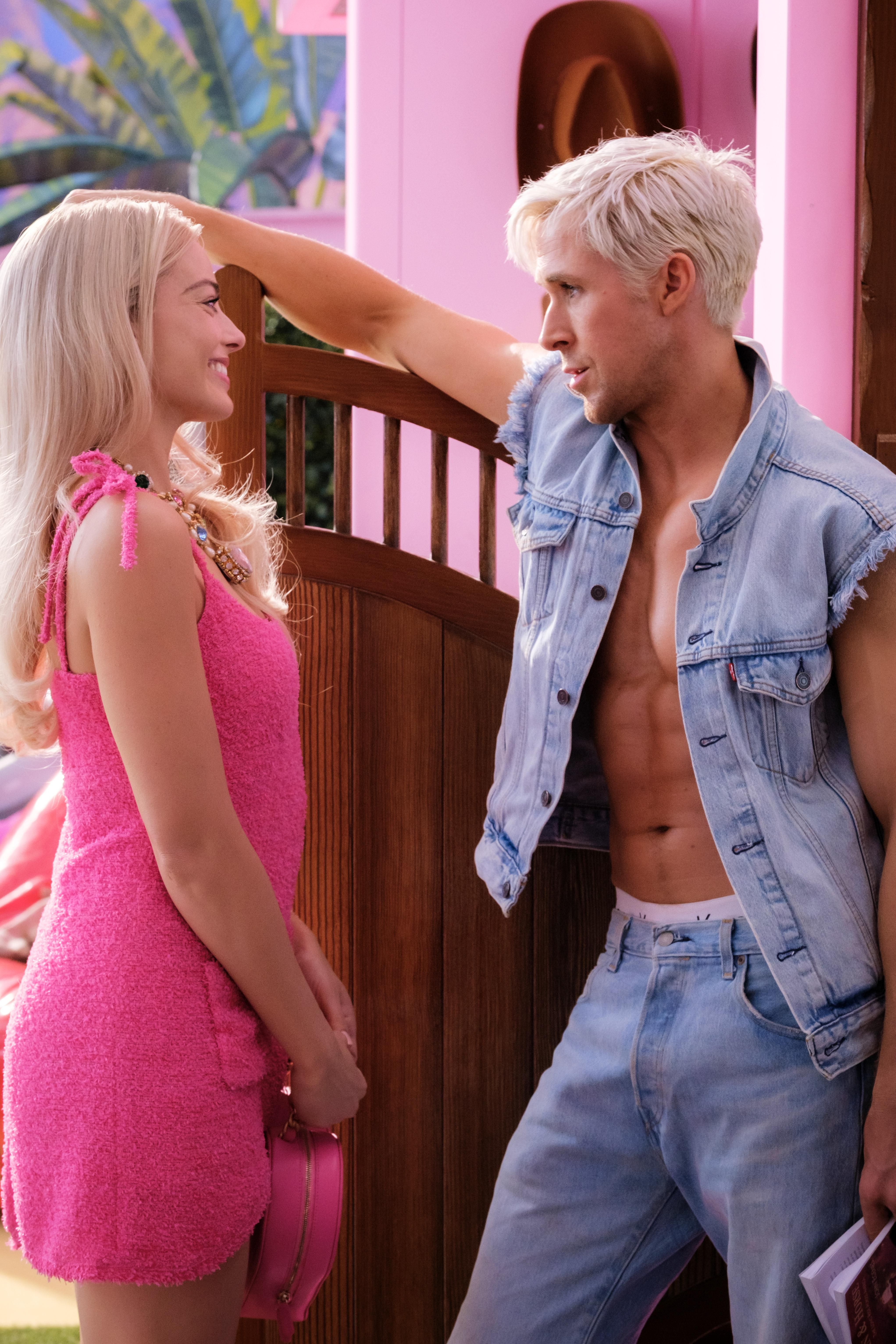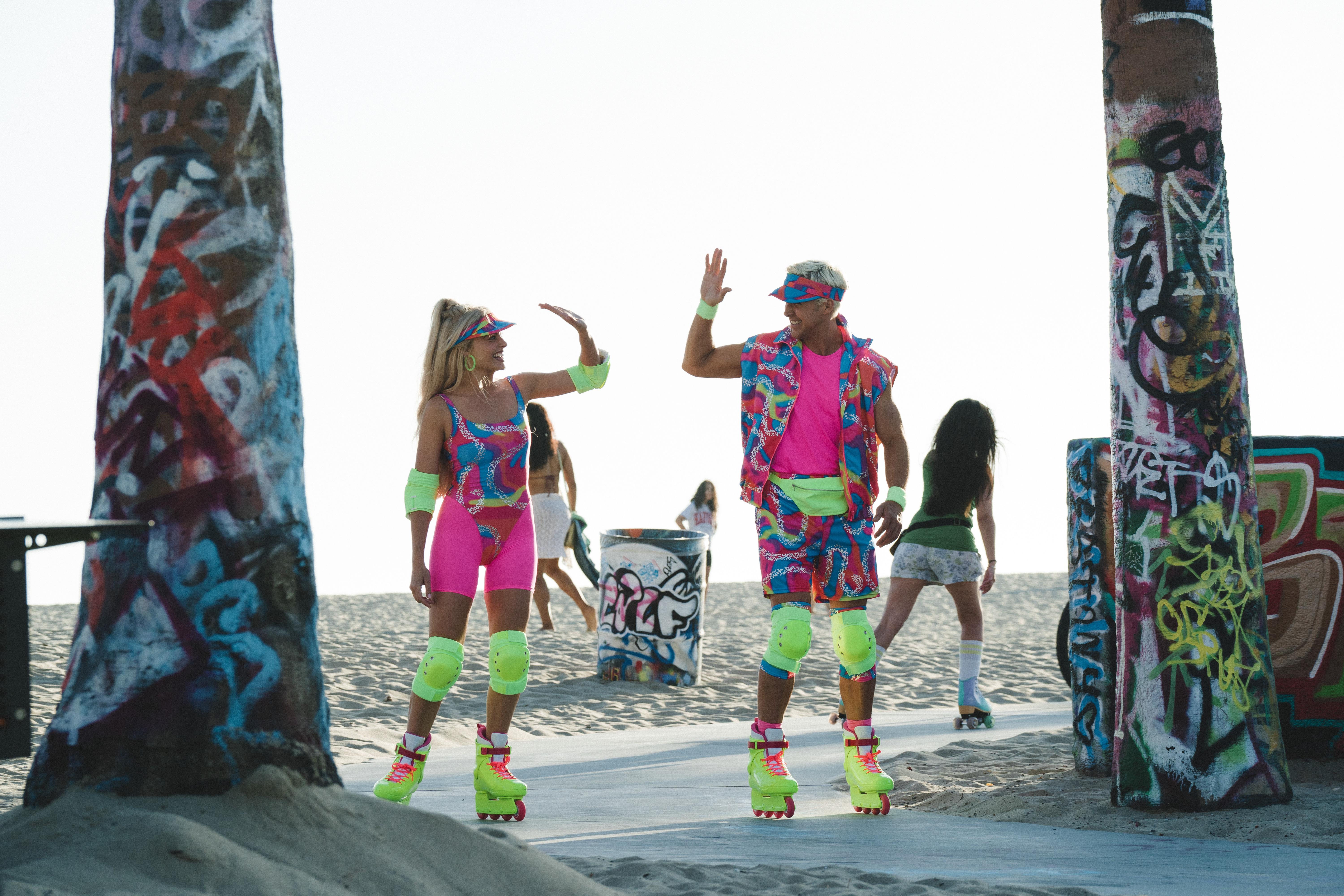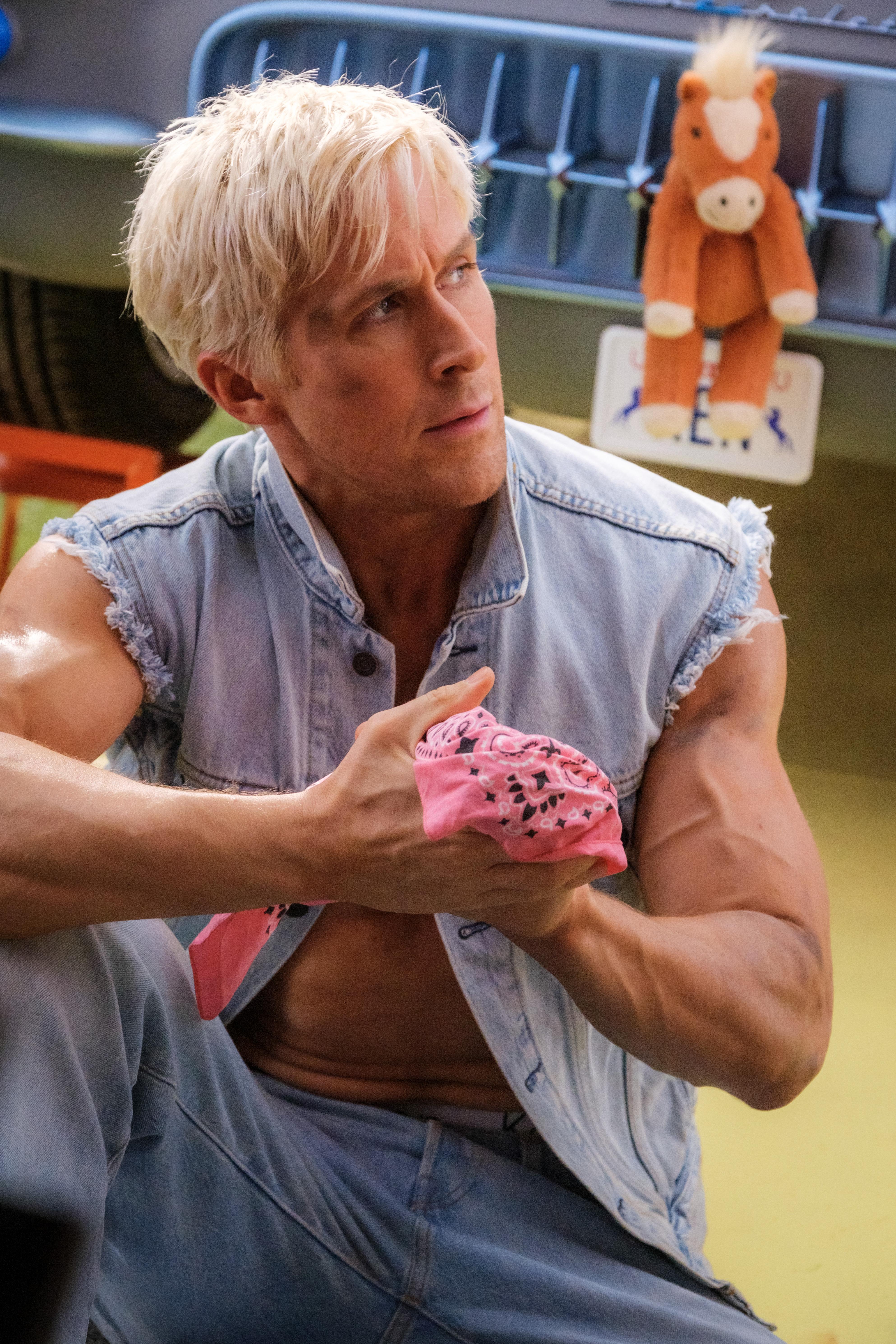Synopsis
In a whimsical yet thought-provoking exploration of identity and society, opens with a narrative journey through the doll's historical impact, depicted with the iconic 1959 Barbie standing tall above an arid landscape. This scene sets the stage for Barbieland, a hidden utopia where Barbies and Kens coexist, albeit with the Barbies holding positions of power while the Kens linger in their shadows, craving recognition. Among them, Beach Ken, played by Ryan Gosling, longs for the attention of Stereotypical Barbie, portrayed by Margot Robbie, who inadvertently overlooks his affections.
Amid the lively backdrop of a dance party, Stereotypical Barbie begins questioning her existence, spiraling into an existential quandary as cracks appear in her seemingly perfect life. Her flawless skin blemishes, and her always arched feet go flat, leading to a search for answers. This quest brings her to Weird Barbie, a character infused with quirky wisdom by Kate McKinnon, who suggests that a real-world connection might be the root of Barbie’s turmoil. Thus begins her journey to Los Angeles to mend the heart of a young girl, Sasha, whose anguish seeps into the doll’s world.
Joined by an unexpected travel companion, Beach Ken, they inadvertently stir chaos, their antics leading to multiple run-ins with the law. As Barbie navigates the complexities of the real world, she experiences raw emotions like sadness, learning to cry as she witnesses humanity’s imperfections. Ken, meanwhile, encounters the allure of the patriarchy and, for the first time, feels appreciated. Enthused by this newfound acknowledgment, he ventures back to Barbieland to spark change.
Barbie’s mission leads her to Sasha, who, with her peers, criticizes the superficial ideals perpetuated by the Barbie image. Amid these challenges, the battle extends to the corporate headquarters of Mattel, where executives, led by a comedic Will Ferrell, seek to control Barbie’s fate. A twist of fate reveals that Sasha’s mother, Gloria, impressively portrayed by America Ferrera, has been projecting her own doubts onto Barbie, unintentionally igniting the doll’s introspection. Together with Sasha, Gloria becomes an ally as they rush back to Barbieland, hotly pursued by Mattel's authorities.
Returning home, Barbie discovers a startling reality: Ken has rallied his counterparts to upend Barbieland’s social order, instating a patriarchy that relegates Barbies to decorative roles. Despite Barbie’s pleas, Ken remains steadfast, savoring his newly discovered sense of worth. In what seems a desperate moment, it is Gloria's impassioned perspective on womanhood that reignites Barbie’s resolve, inspiring an alliance to reclaim their world.
Aided by allies, Barbie orchestrates a clever plan to restore balance, leveraging heartfelt appeals and strategic distractions. Barbieland is reclaimed, leading Ken to a moment of self-reflection and reconciliation with Barbie, as they both embrace their individual identities. As she contemplates her place, a mystical encounter with Ruth Handler, Mattel’s co-founder, offers Barbie profound wisdom—that she is bound by no single destiny and must forge her path.
In a triumphant choice of empowerment, Barbie chooses to live as a human, bearing the name Barbara Handler. Supported by Gloria and Sasha, she steps boldly into her new life, ready to explore her humanity with an appointment that signifies her fresh beginning.
Argument
The film "Barbie" opens with The Narrator, portrayed by Helen Mirren, illustrating the monumental impact of the iconic Barbie doll on society. This introduction is cinematically captured through the image of the towering 1959 Barbie overshadowing a desert landscape, symbolically indicating the paradigm shift Barbie initiated, as young girls discard baby dolls, dismantling outdated perceptions of female destinies.
This narrative seamlessly transitions into the vivid universe of Barbieland, an utopian microcosm ruled predominantly by Barbies yet absent from real-world constraints. Here, the dolls, including various Barbies and Kens, alongside lesser-known characters like Allan, played by Michael Cera, and Midge, depicted by Emerald Fennell, exist under a subtly matriarchal hegemony. The Barbies hold prestigious roles, whereas the Kens, relegated to the margins, subsist in the Barbies’ shadows. Beach Ken, portrayed by Ryan Gosling, harbors romantic feelings for Stereotypical Barbie, played by Margot Robbie, persistently seeking her attention, though she remains unaware of his affections.
The narrative takes a profound turn during a dance soirée at Barbie’s home as she is confronted by a sudden and unsettling contemplation of mortality. This existential query catalyzes a series of unsettling events, marking the onset of Barbie's crisis. Physical imperfections surface, namely blemishes, and her sculpted feet uncharacteristically flatten. It’s through the counsel of the zany Weird Barbie, portrayed by Kate McKinnon, that Barbie learns the source of her turmoil steers from an unhappy human counterpart playing with her. To remedy this conundrum, Barbie is tasked with venturing into the real world to assist the troubled girl.
Embarking on her journey, Barbie finds Beach Ken surreptitiously hiding in her vehicle. Persuaded by his earnestness, she allows him to accompany her, thus steering them toward Los Angeles. Their adventure quickly turns chaotic, resulting in multiple arrests, illuminating the disconnect and disillusionment between their utopic ideals and the imperfection of reality. During this sojourn, Barbie, for the first time, learns to cry and resonates with the beauty of the ordinary, while Ken, drawn into the allure of patriarchy for the sense of worth it affords him, rushes back to Barbieland, eager to transform it.
In Los Angeles, Barbie locates her human counterpart, Sasha, enacted by Ariana Greenblatt, intending to offer guidance. However, Sasha vehemently critiques Barbie as a symbol of superficiality and unattainable aspirations, prompting Barbie to flee in desperation. Concurrently, Mattel’s executive leader, an eccentric character played by Will Ferrell, discovers Barbie’s presence in the real world and commands her retrieval to Barbieland, employing his aides for the mission.
The film sees Barbie arriving at Mattel’s corporate headquarters, confronted by an array of male executives who aim to coerce a return under the guise of a giant doll box. Suspecting their motives, Barbie escapes, aided by Sasha and her mother, Gloria. It is through Gloria, depicted by America Ferrera, that the film reveals the origin of Barbie's existential strife, as Gloria’s personal crisis inadvertently influenced Barbie. Unbeknownst to them, they are pursued by the bumbling CEO and his associates, leading to an unexpected journey back to Barbieland.
Upon their return, they find stark changes; Ken has orchestrated a coup, ushering in a patriarchal regime that subjugates Barbies as obedient companions, a severe dichotomy from their previous stature. The Barbies, once autonomous, are now reduced to simpering cohorts as the Kens strategize to cement their rule constitutionally the following day. Barbie’s attempts to reason with Ken fall on deaf ears as he revels in newfound self-worth, leaving her in despair. Nevertheless, Gloria’s impassioned speech on the nuances and trials of womanhood rekindles Barbie's determination to reclaim Barbieland.
United against the burgeoning patriarchy, Barbie, along with Gloria, Sasha, Weird Barbie, Allan, and marginalized dolls, devise an elaborate scheme. By harnessing the potency of Gloria’s heartfelt declaration, they liberate the hypnotized Barbies and turn the Kens’ egos against one another, distracting them from legislating patriarchy. As the Kens descend into chaotic skirmishes on the beach, the Barbies restore their matriarchal order, reinstating the societal status quo.
In this reflective turn of events, a disheartened Ken grapples with his identity, coming to terms with his perceived insignificance outside of Barbie's narrative. In a pivotal moment, Barbie encourages him to forge his own path, leading to a mutual apology and reconciliation. Meanwhile, President Barbie, enacted by Issa Rae, strikes a conciliatory arrangement with the Mattel CEO, promising equality for Kens and other disregarded toys.
Despite the restoration of order and her impactful deeds, Barbie navigates through an identity crisis, unsure of her own purpose. This search for meaning leads to an encounter with the spirit of Ruth Handler, the visionary creator of Barbie, portrayed by Rhea Perlman. Ruth articulates that Barbie's purpose transcends a singular identity, reflecting the evolving roles of women and individuals in society. Inspired by visions of nurturing and evolution, Barbie elects to step into reality as a human, assuming the name Barbara Handler. This decisive step culminates in a journey symbolized by her visit to a gynecologist—a declaration of embracing womanhood and personal freedom.
Cast

Margot Robbie
Barbie

Ryan Gosling
Ken

Issa Rae
Barbie

Kate McKinnon
Weird Barbie

Alexandra Shipp
Barbie

Emma Mackey
Barbie
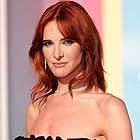
Hari Nef
Barbie

Sharon Rooney
Barbie

Ana Cruz Kayne
Barbie

Ritu Arya
Barbie

Dua Lipa
Barbie

Nicola Coughlan
Barbie

Emerald Fennell
Midge
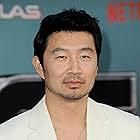
Simu Liu
Ken

Kingsley Ben-Adir
Ken

Ncuti Gatwa
Ken

Scott Evans
Ken

John Cena
Ken
Multimedia
